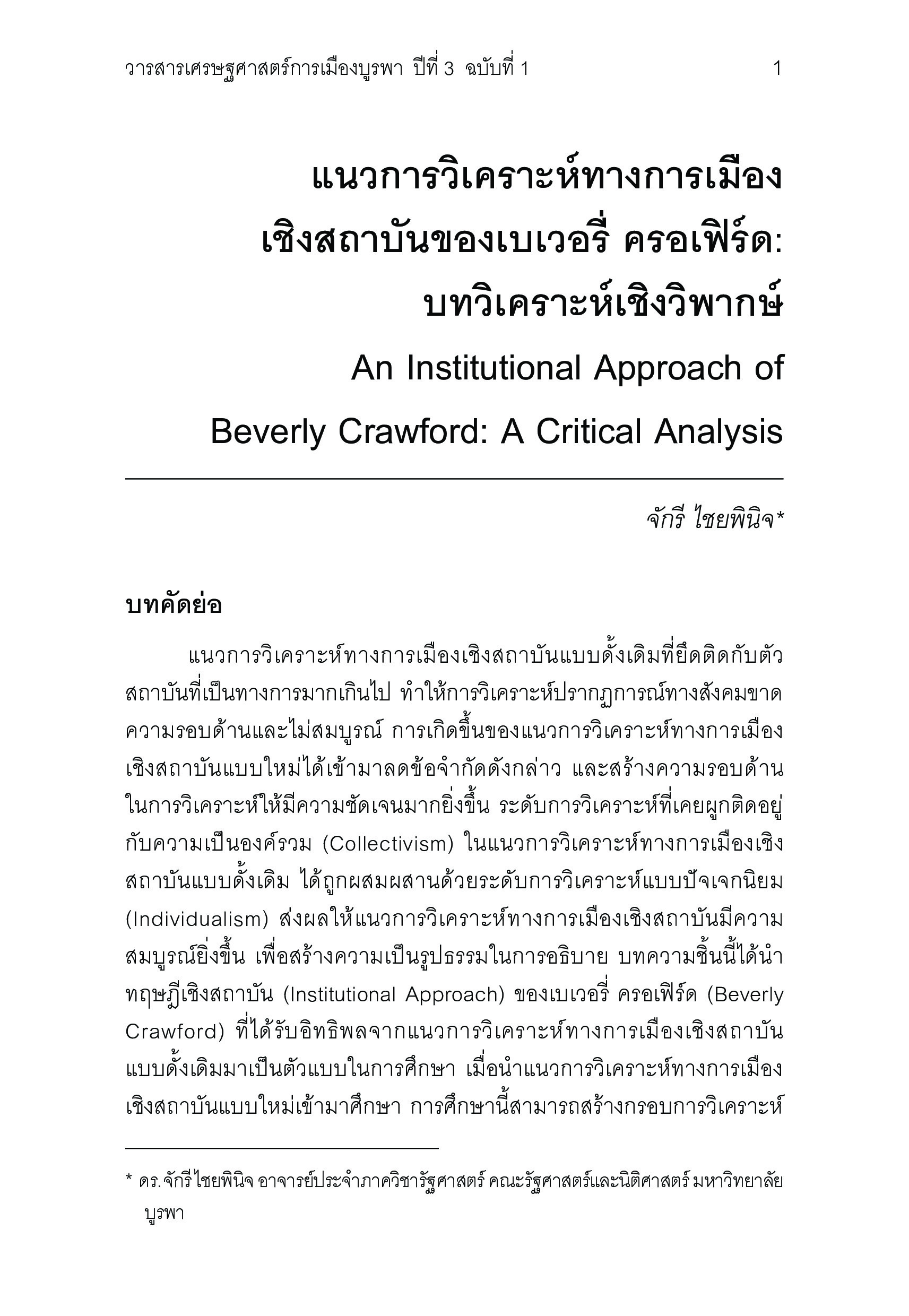An Institutional Approach of Beverly Crawford: A Critical Analysis
Keywords:
Traditional Institutionalism, New-Institutionalism, Beverly Crawford, Cultural ConflictAbstract
A Traditional Institutionalism narrowly focusing on formal institutions had brought about an incomprehensive and incomplete analysis on social phenomenon. An establishment of New-Institutionalism has been appeared to lessen such limitations, and fulfill more comprehensive analytical findings. Level of analysis bounded with collectivism via a Traditional Institutionalism has been assorted with individualism. This reveals a more inclusive Institutionalism. In order to concrete an explanation, this article has selected Beverly Crawford’s Institutional approach mainly influenced by a Traditional Institutionalism as a model of study. It discovers that when bringing the New-Institutionalism to apply with a model, an analytical framework for studying causes of cultural conflict in each area can be conducted comprehensively. This result can probably lead to a conclusive and accurate solution.
References
Crawford, B. and Lipschutz, R. D. (Eds). (1998). The Myth of “Ethnic Conflict”: Politics, Economics, and “Cultural” Violence. California: University of California International and Area Studies Digital Collection.
Hay, C. (2002). Beyond Structure versus Agency, Context versus Conduct. In Political Analysis. New York: Palgrave Macmillan.
Horachaikul, S. (2003). The Far South of Thailand in the Era of the American Empire, 9/11 Version, and Thaksin’s “Cash and Gung-ho” Premiership. In Asian Review 2003. 16. pp.131-151.
Kontopoulos, K. (1993). Epistemic Strategies in Contempory Science. in The Logics of Social Structure. London: Cambridge University Press.
Lowndes, V. (2002). Institutionalism. in Marsh, D. and Stoker, G. (Eds). Theory and Methods in Political Science. Hound mills: Palgrave.
March, D. & Batters, E. and Savigny, H. (2004). Historical Institutionalism: Beyond Pierson and Skocpol. Technical Report Seminar, Political Science Program, Australian National University. May 12, 2004. Retrieved July 18, 2015, from https://digitalcollections.anu.edu.au/handle/1885/42126.
Phongpaichit, P. (2004). A country is a company, a PM is a CEO. in Seminar on Statesman or Manager? Image and Reality of Leadership in SEA. On April 2, 2004.
Phongpaichit, P. & Baker, C. (1995). Thailand: Economy and Politics. Kuala Lumper: Oxford University Press.
_______. (2004). Thaksin: The business of politics in Thailand. Chiang Mai: Silkworm.
Se-nium, T. (2004). Latest violence highlights tense relations between Bangkok, Muslim South. Quoted as a member of the opposition Democrat party. Retrieved Janualy 11, 2004, from http://sg.news.yahoo.com/040111/1/3h6iw.html.
Suthasasna, A. (2000). Muslim Minority in the Context of Thai Politics. In Journal of Social Science Chulalongkorn University, 31(1).
Uttrasin, A. (2002). The Local Administration of Special Area of the Five Provinces in the South of Thailand. Unpublished paper, The Partial Fulfillment Report for the High Certificate, King Prajadhipok’s Institute.






